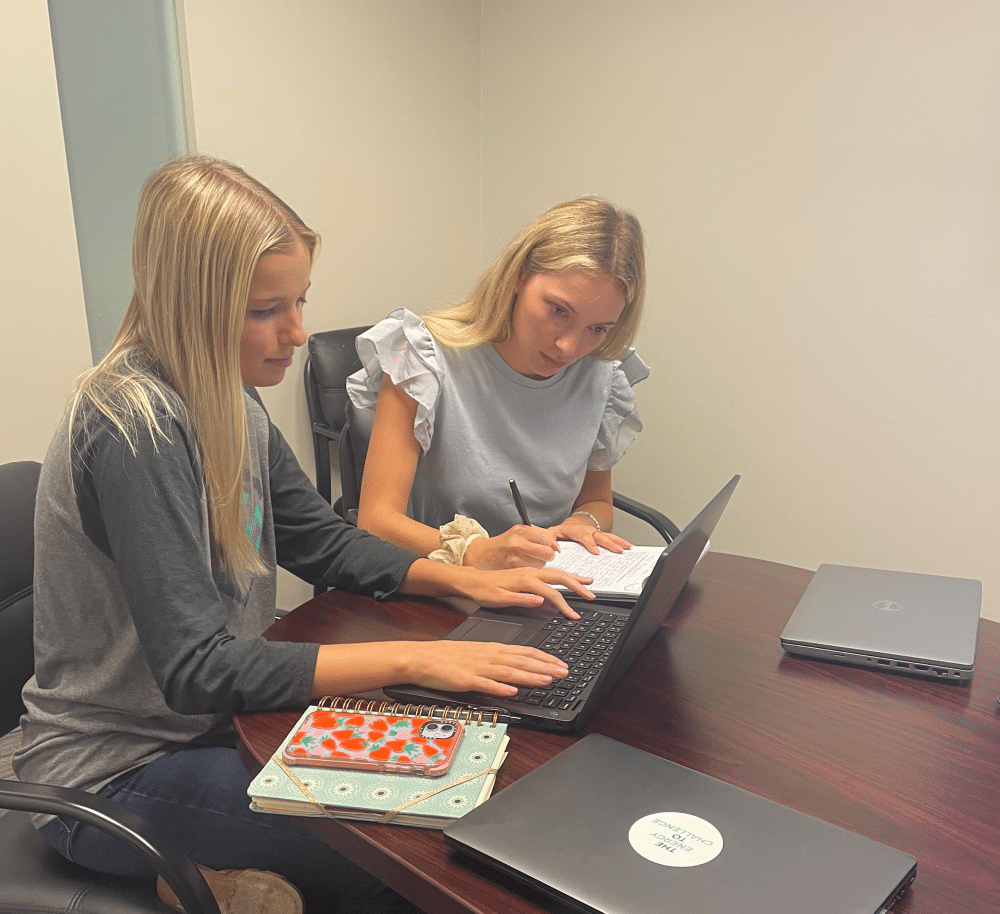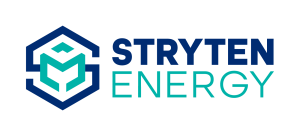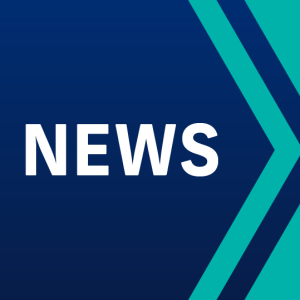For Stryten Energy interns and other college students, summer internships are incredibly valuable. Internships enable students to apply what they’ve learned in class and gain real-world experience in their area of study.
“We have a strong intern program at our company,” said Joe Aldis, Senior Recruiter. “From day one, we provide guided structure and opportunities to explore what their career could look like. In fact, each intern does a ‘capstone’ presentation at the end of the summer on the project he or she worked on. This requires collaboration, research and critical thinking skills, which are all desirable qualities in the workforce.”

This summer, Stryten Energy welcomed several college interns across the company in a variety of roles, including Corporate Marketing and Communications, Engineering and IT. Stryten Energy interns on the Corporate Marketing and Communications team, Mackenzie McClure and Mirabella Judd, sat down to answer a few questions about their experience.
What attracted you to this internship at Stryten Energy?
Mackenzie: Going into my junior year of college, I was looking for an opportunity to learn outside of the classroom. I wanted an internship that would immerse me in my field of study. Stryten provided an environment that would allow me to see multiple career paths within my major. I would not have been exposed to these jobs without this internship.
Mirabella: As I was finishing my junior year of college, I wanted to explore career opportunities, and there is no better way to do that than finding an internship. I was interested in working with the Stryten Corporate Marketing and Communications department, because it was in the field I wanted to work in after graduation, and the job posting mentioned opportunities to learn about the different aspects of marketing.
What was the biggest challenge you faced during your internship?
Mackenzie: I realized that very little of what I had learned in an academic environment was applicable in a corporate setting. Some of the terminology from my college courses was used during my internship, but I had to be taught various tools and processes from the ground up. I came into the middle of projects, rather than starting from the beginning. It was a completely different environment than anything I had been exposed to before. However, I feel the team did a great job of integrating me into the projects and was patient with me when I did not know what was going on.
Mirabella: The biggest challenge I faced was getting comfortable and learning the ins and outs of working for a large company. That transition from a college classroom to a professional environment took a lot of focus and responsibility. There were many tasks throughout my internship that I needed extra assistance with, but it became easier the more I learned.
What skills did you learn throughout your internship?
Mackenzie: During my internship, I worked on different projects with multiple people, as well as some on my own. In doing so, I learned the value of interpersonal group communication skills. Asking questions was a big part of this communication since I had little knowledge of the business, and the answers provided the necessary information to plan projects. I also learned how to use various programs, including Adobe Illustrator for graphics, Constant Contact for external communications and Staffbase for internal communications. These were for different projects going on simultaneously so I also learned how to juggle all of this work at the same time.
Mirabella: I learned corporate-level communication, as well as a number of different tools and programs. I improved my writing skills and learned the differences between academic and professional writing, and I gained more confidence in my work. I learned the value of collaboration, especially when editing my writing and selecting Adobe stock images for graphics to complement the content. I also feel the hands-on experience I received working in Semrush was really valuable. I was able to take the information I learned about SEO in class and actually apply it in a real-world setting to help improve the company’s ranking.
What particular skills did you learn that would be transferable to your academic career?
Mackenzie: This experience in a corporate environment allows me to walk back into the classroom with new knowledge and skills. I strengthened my writing skills through the blogs, social media posts and newsletter articles I wrote. I am taking the problem-solving I learned from different projects and applying that mindset in my classes. I’ve also learned to have confidence in my decisions and not second guess myself.
Mirabella: The skills that I feel are the most transferable to my academic career would be the ability to communicate verbally and in writing at a professional level. Time management skills and the ability to hold myself accountable for what needs to be done are also very important as I go back to the classroom.
What did you learn are your biggest strengths and weaknesses in a corporate setting? Were you surprised by any of these?
Mackenzie: I consider myself a quiet person who doesn’t have much to say. I usually consider this a weakness but instead, it gave me an opportunity to listen and learn more. My biggest weakness was my preference for structure. Being able to go with the flow is an area where I have struggled in my academic career, and I wasn’t surprised that it might also be an issue in a corporate setting. I targeted this weakness early on and was able to work on it during my internship. It was very important for me to understand that sometimes things do not go as planned, and that is okay.
Mirabella: My biggest strength coming into the internship was my confidence. I was not nervous about asking questions or asking for help, which I feel is a necessary skill to have at any job. I understood that the team worked together to help each other, no matter how simple I thought the question might be. My biggest weakness was accepting the fact that some deadlines would be changed and that projects would be paused because something more urgent came up. I had to learn to be comfortable with fluctuating timetables, but I feel that taught me to be more adaptable.
If you could go back to the beginning, what would you change about your experience?
Mackenzie: I would take more notes. I wrote down my daily to-do list, but I didn’t write down the advice I was getting or other information I could use for the rest of my college career or later in the future. I learned a lot, and there is no way I can remember everything that was said to me.
Mirabella: I would change how much time I was able to spend at my internship. I started later because of my classes, and I wish I could have had a longer experience. There was still so much for me to learn.
To view open positions, please visit our Stryten careers page or our Motrex careers page.







